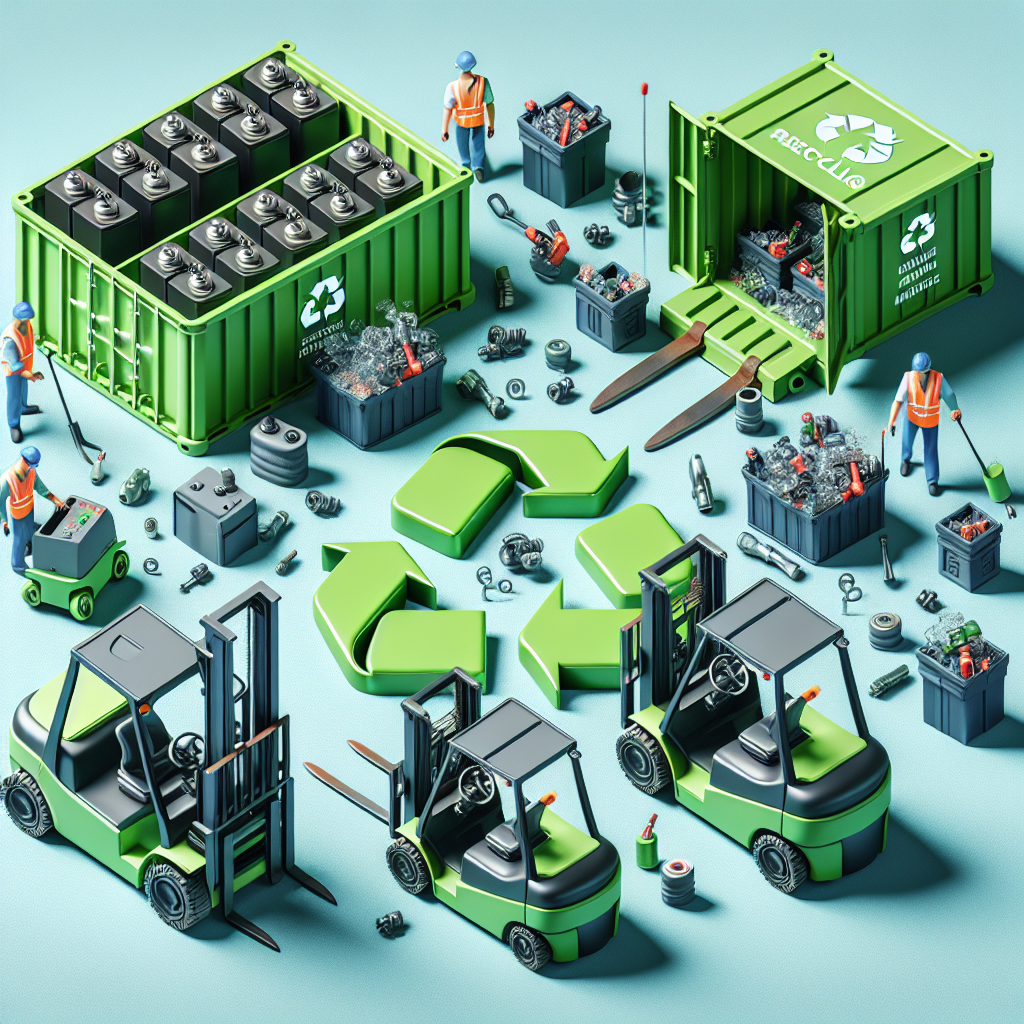Blog Ecobraz Eigre

Recycling forklift batteries in compliance with the PNRS and environmental standards
The recycling of forklift batteries is essential to ensure sustainability and compliance with the National Solid Waste Policy (PNRS) and current environmental regulations. This article discusses the main aspects of the process, from collection to proper disposal, highlighting the importance of safe and responsible procedures.
Importance of recycling forklift batteries
Forklift batteries, usually composed of lead-acid or lithium-ion, contain materials that can pose significant environmental risks if disposed of incorrectly. Proper recycling helps reduce environmental impact, prevents soil and water contamination, and promotes the reuse of valuable components such as lead and plastic.
Compliance with the National Solid Waste Policy (PNRS)
The PNRS, established by Law No. 12.305/2010, establishes guidelines for the integrated management of solid waste, prioritizing the reduction, reuse and recycling of these materials. In the context of forklift batteries, the standard imposes shared responsibility between manufacturers, users and recyclers to ensure the correct management of hazardous waste.
This legislation requires that the disposal and treatment of batteries follow specific protocols to minimize environmental and public health risks, also encouraging the creation of reverse logistics systems to facilitate collection and reuse.
Environmental standards applicable to battery treatment
In addition to the PNRS, forklift batteries are subject to environmental standards that regulate handling, transportation and recycling. These include CONAMA Resolution No. 401/2008, which provides for the management of hazardous solid waste, and ABNT (Brazilian Association of Technical Standards) standards that guide safety and storage procedures.
These rules ensure that facilities responsible for recycling adopt safe practices, such as proper containment of leaks, fire protection and control of atmospheric emissions.
Steps in the forklift battery recycling process
The recycling process begins with localized collection and transportation in compliance with safety standards. The batteries are then dismantled to separate the components, which are then treated in specific ways:
- Recovery of lead: the metal is melted down and purified for industrial reuse.
- Treatment of the electrolyte: the sulphuric acid can be neutralized or recycled for new uses.
- Recycling of plastics: high-strength plastic materials are separated for processing.
These stages ensure maximum reuse of the materials, reducing the need to extract natural resources and minimizing environmental impact.
Economic and environmental benefits
The reuse of battery components reduces raw material costs and avoids expenses associated with the treatment of improperly disposed hazardous waste. Environmentally, recycling preserves natural resources, prevents environmental contamination and contributes to the circular economy.
In addition, compliance with standards ensures safety for the workers involved and the community, consolidating sustainable practices that are essential to the responsible development of the industrial sector.
Final considerations
Recycling forklift batteries properly, in compliance with the PNRS and environmental standards, is fundamental to environmental and social sustainability. Integrated actions between all the players involved are essential for the successful management of this waste, avoiding negative impacts and promoting the effective recovery and reuse of materials.

Deixe um comentário
O seu endereço de e-mail não será publicado. Campos obrigatórios são marcados com *